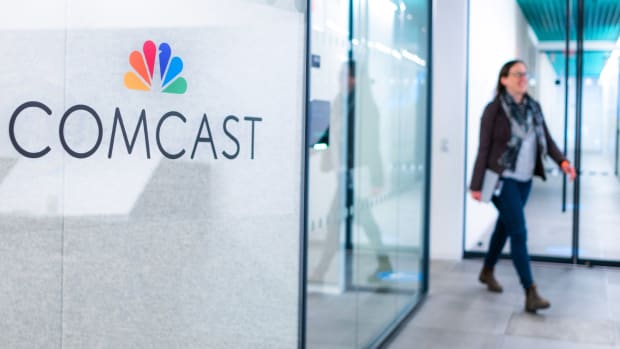
You can legally change your first name to "King," but that does not make you the ruler of a country. Similarly, I could make a movie about the former rivalry between Katy Perry and Taylor Swift and call it "Star Wars," but that doesn't mean Luke Skywalker or Darth Vader will show up.
Since you can't own a word, even one that conveys a certain meaning, there's nothing stopping you from naming your child, Lord, Captain, or anything else. Lawyer Milloy, for example, was an excellent football player, but not an actual lawyer.
DON'T MISS: Comcast 'Customer Service' Leads to Another Scandal
Similarly, you can't trademark or copyright a movie title. That's why you could within very specific parameters use the "Star Wars" title or produce a documentary on Canadian documentary make Ron Mann and call it "I, Ron Mann." In both of those cases, however, you can assume that the accompanying artwork would let people in on the joke.
Walt Disney (DIS) could sue if a connection to the better-known properties using those names was implied, but the names themselves are okay. That's a sort of loophole that Comcast (CMCSA) has exploited with its new Xfinity internet platform. The name is misleading and that's exactly what the company wanted to accomplish.

Image source: Jeff Fusco/Getty
Comcast Wants To Confuse Customers
Everyone knows what 5G wireless service means. They may not know that 5G actually stands for "fifth generation, but they do know that 5G offers faster speeds and better service than 4G, which was better than 3G, and the other service levels that came before it.
The term 5G actually means something in the wireless space as it's literally a standard that Verizon (VZ), AT&T (T), and T-Mobile (TMUS) began rolling out nationwide in 2019. 5G has been marketed as better and faster and the term means something to consumers.
Comcast, on the other hand, has labeled its new Xfinity internet platform, "10G." That's a clear attempt to make an implication to consumers that's not actually true, according to PC World Senior Editor Alaina Yee.
"You also may have already seen the advertisements about Comcast’s new 10G Xfinity network blanketing the airwaves and other platforms. And since the Xfinity website doesn’t really clarify what “10G” means, you might assume that the company’s home internet service is a faster version of 5G. Even if you dig around and stumble upon Comcast’s corporate webpage about 10G, its reference to 'multi-gig speeds' won’t necessarily dispel your initial impression," she wrote.
It's a clear attempt to imply something to consumers that's not actually true without directly saying it, according to the writer.
"That’s likely what Comcast’s marketing team wants from co-opting cable-industry jargon created in 2019, long after the naming of cellular networks began. But don’t let them confuse you. '10G' is a reference to 10Gbps or the maximum speed the Xfinity broadband network is capable of. You’re reading that right: It has nothing to do with cellular network terminology (like 5G) whatsoever, and Comcast’s service is for home internet, not mobile. It’s deeply misleading," she added.
And, to make matters worse, Yee pointed out that Comcast's 10G network is actually slower than 5G.
"Peak theoretical throughput on an uncongested 5G network offers up to 20Gbps download and 10Gbps upload. Xfinity caps out at 10Gbps down and up," she wrote.
Comcast Has a Long History of Being Shady
Comcast has a history of not being straight with its customers or treating them all that well. That traces back to its days as a cable monopoly when it could force customers to deal with things like 8-hour appointment windows because they had no other options.
In recent years, Comcast has also come under fire for its misleading cable pricing. The company advertises one price but does not disclose that it's not actually possible to pay the price. That might be okay if it was only leaving out taxes and mandated government fees, but that's not what it's doing.
The company actually leaves out the Broadcast Network fee and Regional Sports fee from its advertised prices. But, that's not great because these aren't optional fees or government-mandated ones. You have to pay both fees but Comcast leaves that out of its top-line pricing.
So, the 10G deception isn't all that surprising, but that doesn't make it any less shady.







